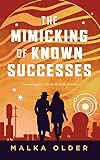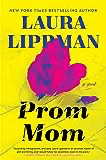Robbie George (a Princeton professor better known as a voice of the Catholic right) tweeted approvingly about Louise Perry’s “We Are Repaganizing”. Perry thinks we are all decadent Romans, and wants to remind us where that supposedly led. She begins with an anecdote about the archaeology of brothels:
Helen [Dale] was a classicist before she was a lawyer, and as a younger woman she had taken part in archaeological excavations of ancient Roman sites. “First you find the erotic statuary,” she went on, “and then you dig a bit more and you find the male infant skeletons.” Male, of course, because the males were of no use to the keepers of Roman brothels, whereas the female infants born to prostituted women were raised into prostitution themselves.
This is preposterous on several counts.
First: that’s not how archaeology actually works. Nowadays, that “you dig a bit more” would describe years, perhaps decades, of painstaking field work. Archaeology has changed since Schliemann.
Second: Helen Dale seems not to be a classicist. She studied English at the University of Queensland, taught for a while, then studied Law at Queensland, Oxford, and the University of Edinburgh.
Third: the archaeological evidence is extremely thin.
- Yewden Villa in Buckinghamshire was excavated 1912-1921. Seventy infant skeletons were found (and packed away in cigarette cartons). A few could be identified by sex: 14 boys vs. 3 girls. Many of the skeletons seem to have been lost over the years, so they’re hard to restudy. The site, in antiquity, was in the middle of nowhere, which casts doubt on the brothel theory. Preferential preservation could explain the gender disparity. Something happened here, but we really have no idea what. (I don’t think there’s any erotic statuary from Yewden)
- A late-Roman/early-Byzantine sewer in Ashkelon (the city for which shallots are named) contained 97 newborns. It might be associated with a nearby building that might have been a brothel at some point, but there's no decent evidence that the babies and the brothel date from the same era. (There's no erotic statuary in the sewer, either.)
That seems to be it for the archaeology. We have a couple more ancient brothels: one certain brothel in Pompeii, one plausible brothel in the Kerameikos in Athens, a few more possible candidates. None have infant burials. After a couple of millennia, it’s hard to distinguish a brothel, a tavern, and a house. If you doubt me, take a walk around Storyville in New Orleans today. Pretty Baby is set in 1917, only a few years before the excavation at Yewden Villa.
The anecdote’s “first you find the erotic statuary” seems to be invented. The phrasing suggests that this happens all the time — it suggests that the speaker has experienced it more than once. Perhaps it’s happened to someone, but I can’t find any reference to it in connection with any putative brothel outside Pompeii. (The brothel in Pompeii was excavated 1862. No infants. As at Yewden, no one at the excavation is alive to tell the story.)
There’s not much literary evidence for Roman prostitutes killing infants. If the practice was common and christians opposed it, it would have made a handy polemic cudgel. There are plenty of references to abandoned infants, but these are chiefly with regard to their legal status: could you assume a foundling to be a slave? Remember: everyone knew that Rome was founded by foundlings. Thomas Coram founded The Foundling Hospital in 1739; one presumes the England of George II was not really rife with infanticide.
We do know a ton about Roman prostitution because a bunch of our sources liked to talk about it. Plautus, Ovid, Martial, Juvenal, Catullus have plenty of prostitutes. None of them says much (anything?) about infanticide. Augustine knew prostitutes and knew christianity, but he doesn’t say anything about disposing of babies. Paul in I Corinthians 6 would surely have mentioned infanticide in his calumny of prostitution had it been thought to be widespread.
Louise Perry assumes that Roman brothel keepers would have no use for male infants. This is wrong in two ways. First, one thing we do know from literary sources is that male prostitutes were plentiful in brothels, that they were quite popular, and that their careers were shorter than the careers of female prostitutes. Second, if you were the proud owner of a new slave boy, and you wanted a new slave girl, you could walk down the street to a slave dealer and negotiate a trade-in.
Perry, of course, proceeds to drag contemporary abortion politics into the mix:
It was the arrival of Christianity that disrupted the Romans’ favored methods of keeping reproduction in check, with laws against infanticide, and then abortion, imposed by Christian emperors from the late fourth century.
The Roman state didn’t have trouble keeping population in check: it had trouble keeping population up. Major initiatives from Augustus on sought to increase population through tax incentives and other privileges. Between the dangers of childbirth and huge rates of infant mortality — perhaps approaching 50%— keeping the population stable was a challenge. No one worried about overpopulation. The christian takeover initiated a catastrophic population decline in the West, though evidence in the Byzantine world cuts both ways.
In the end, the whole argument is absurd. Its supposition that the only alternative to christianity is Roman paganism is wrong. Roman paganism wasn’t a monolith, anyway. It’s just christian propaganda to lump the followers of Mithras and Zoroaster with Isis and Buddha and Thor, with Jews and the Neoplatonists and everyone else. It presupposes that belief matters — a natural supposition to a christian, but one that surely would baffle Plautus or Petronius.
If you want to argue from history, it’s better to rely on evidence for what happened, rather than to make it up.

